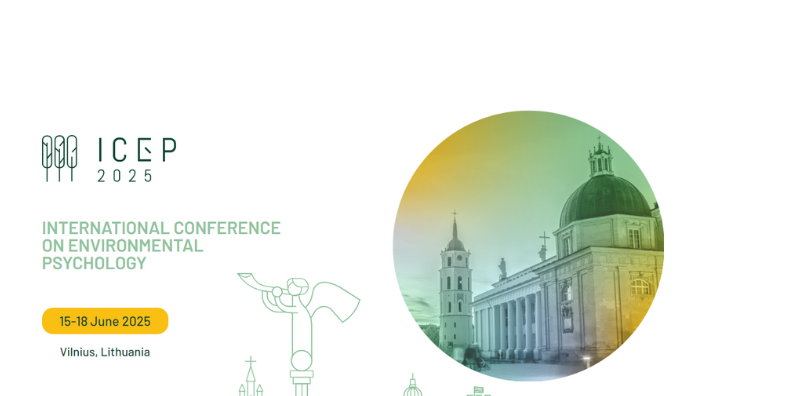
From June 15–18, 2025, Vilnius will become the hub of the international environmental psychology community as it hosts the International Conference on Environmental Psychology (ICEP 2025). This significant global event is organized in Lithuania by the Environmental Psychology Research Center (EPRC) in partnership with the Institute of Psychology at Mykolas Romeris University (MRU).
This will be the first time the conference is held in Lithuania, and the choice of Vilnius is no coincidence – in 2025, the city has been named the European Green Capital, and topics in environmental psychology have become increasingly relevant in the context of today’s global challenges.
Theme: Environmental Crisis and Geopolitical Challenges
The main theme of ICEP 2025 is “Addressing environmental crisis in the face of geopolitical challenges.” The conference will explore the interaction between human behavior and the environment, climate change, sustainable urban development, social justice, and solutions that are possible only through the integration of diverse scientific disciplines and practical approaches.
Keynote speakers include internationally renowned experts such as Prof. Linda Steg (Netherlands), Prof. Susan Clayton (USA), Prof. Ricardo Garcia Mira (Spain), among others.
Interdisciplinarity and Collaboration at the Core
ICEP 2025 will bring together researchers, practitioners, policymakers, environmental experts, architects, and urban planners from around the world. The conference aims not only to share knowledge but also to foster sustainable collaboration and build new scientific and practical partnerships.
The Mykolas Romeris University community is warmly invited to attend – those interested in joining are welcome. With over 630 scholars from across the globe expected to participate, this is a unique opportunity to experience a world-class academic event and hear from leading voices in the field.
Why Vilnius?
Vilnius – a dynamic, green, and community-oriented city – has been named the European Green Capital for 2025. It offers the ideal setting for discussions about human well-being, environmental responsibility, and forward-looking solutions.
More information.